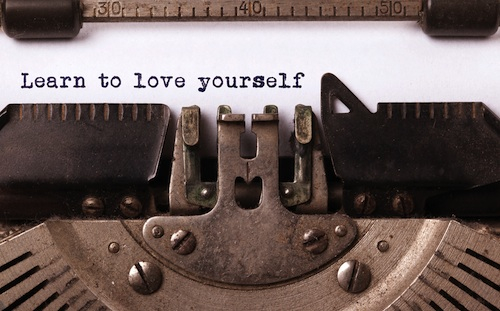 In the age of the “selfie,” when the social media lens is more tightly focused on the self than ever before while constant media coverage exposes us to the suffering of others on an international scale, many people often feel discouraged or despairing. What if self-help, the pursuit of self-betterment, is actually the best way to help others?
In the age of the “selfie,” when the social media lens is more tightly focused on the self than ever before while constant media coverage exposes us to the suffering of others on an international scale, many people often feel discouraged or despairing. What if self-help, the pursuit of self-betterment, is actually the best way to help others?
Self-help is often decried as selfish navel-gazing, nothing more than a way for Big Name Gurus with perfect smiles to sell you products with hefty price tags. But I’ve found that a more humble form of self-help, best compared to tuning up a vehicle so that it runs at its peak performance, can allow a person to give more to others, and it can offer substantial health benefits, as well.
Through our own vulnerability we allow others the opportunity to be vulnerable, too. With deepening patience, we can act as witnesses without taking emotions on as burdens.
“What can we do to help?” asked Barnaby, our point person for the weekend. “If you need something, just ask.”
All weekend I marveled at the way the staff met our needs, even anticipated them. At one point I stopped Kelly, the woman who ran the gift shop, to ask, “How do you do this? Be present for all the people who come through here?” The center had just hosted a four-hundred-person Geneen Roth healthy eating retreat the previous weekend.
“My meditation practice allows me a lot of time for reflection,” Kelly offered, dusting a piece of lint off my shoulder. “And sometimes I have to do a lot more reflection than other times.”
The entire staff, all of whom reside on-site, keep up a regular yoga and meditation practice, eat vegetarian food, and abstain from drugs and alcohol. No matter how often we flagged them down for any request—from an umbrella for our workshop patio to a snack for starving participants—they came through with smiles. Once, when a participant in our workshop was unusually ruffled, the director himself took me aside and suggested she needed “extra loving attention.” Anywhere else, we’d have been asked to “deal with it.”
There is no way I would have made it through the weekend meeting the needs of eighteen writers, each grappling with the challenges of the creative process, without a breakdown of some kind if not for the staff’s selfless service on our behalf. I came away wanting to be a more selfless and available teacher, too, and to process my grief in a way that helps others. Motivated by the model set for me, I returned to the three forms of self-care I’ve found to be most effective for me: meditation, journaling, and swimming, all of which have been shown to reduce stress and calm the mind.
By acting altruistically, we reap the “helper’s high”—a beneficial state known to reduce stress, lower blood pressure and cortisol, lessen the risk of heart attack, and more.
Moreover, I learned that the pursuit of self-betterment receives an exponential boost when we help others. By acting altruistically, we reap the “helper’s high”—a beneficial state known to reduce stress, lower blood pressure and cortisol, lessen the risk of heart attack, and more, according to a study done by Dr. Stephen Post, professor of bioethics at Stony Brook University. In this way, the path becomes gentler and healthier, not just for those who receive, but for those who give, as well.
Just as they tell you on an airplane that in case of emergency, you should put your own mask on first before helping others, sometimes the best way to help others is to first help yourself.
Click here to see Rose’s tips for healthy and happy relationships



